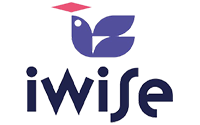The iWISE Olympiad’s Agricultural Science category encourages students to address real-world problems in agriculture by researching existing challenges and proposing innovative, science-based solutions. The contest provides an international platform for young scientists to showcase their research and inspire progress in the agricultural sector.
– Encourage problem-solving: Inspire students to identify pressing issues within the agricultural sector, such as food scarcity, environmental degradation, resource management, and crop health.
– Drive innovative solutions: Challenge participants to use their scientific knowledge and understanding of emerging technologies to design and develop innovative solutions to these problems.
– Validate scientific rigor: The competition requires participants to demonstrate their scientific prowess by presenting a project that is grounded in sound research and methodology.
– Educate on agricultural challenges: Increase students’ and public awareness of the complex issues facing the agricultural industry globally.
– Highlight the role of science: Showcase how scientific principles and technological advancements can be harnessed to create a more sustainable and efficient agricultural system.
– Encourage future engagement: Inspire students to pursue further education and careers in agricultural sciences and related fields.
– Encourage teamwork: The category allows for group submissions, promoting collaboration and the development of interpersonal skills among participants.
– Facilitate international exchange: The international platform fosters a global community of young agricultural scientists, enabling the exchange of ideas, interests, and scientific abilities.
– Showcase diversity in research: Welcome projects from a wide range of subcategories, including plant systems, animal systems, aquaculture, and environmental quality, to reflect the diverse nature of agricultural science.
Young scientists can explore the Agricultural Science Category through various subcategories:
Animal Systems,
Animal Production,
Animal Behaviour,
Animal Genetics,
Animal Physiology,
Zoology,
Wildlife Management,
Plant Systems,
Botany,
Plant Genetics,
Plant Pathology,
Aquaculture,
Crop Sciences,
Water quality etc.
- Click on the Registration Tab
- Select one of the Virtual Finals
- Fill in your details.
- Fill in your selected category details on the corresponding form.
- Select your available time for the Judging process.
- Submit your zoom judging session.
- Proceed to payment.
- Complete your submission.
The evaluation criteria for the iWISE Olympiad’s Agricultural Science category are designed to assess a participant’s comprehensive understanding of agricultural challenges and their ability to propose scientifically sound, innovative, and practical solutions. The criteria balance research rigor, creative thinking, and effective communication.
Scientific and technical merit
This is the core of the evaluation, focusing on the quality of the scientific research and the solution’s technical foundation.
– Scientific accuracy: The project should be grounded in accurate, relevant scientific principles from fields such as soil science, plant biology, animal husbandry, and genetics.
– Methodology and research design: The participant must clearly articulate the research methods used to investigate the problem. The methodology should be sound, logical, and appropriate for the problem identified.
– Depth of research: The evaluation assesses how thoroughly the participant investigated the problem, including the collection and analysis of data, whether through experimentation or a literature review.
– Validation of results: Conclusions and proposed solutions should be directly supported by the research findings.
Innovation and creativity
This criterion rewards novel and creative approaches to solving agricultural problems.
– Originality of solution: The proposed solution should be unique and innovative, addressing the problem in a new and creative way, rather than simply reiterating existing solutions.
– Emerging technologies: The participant should demonstrate an understanding and application of emerging technologies relevant to agriculture, such as precision agriculture, robotics, artificial intelligence, or biotechnology.
– Resourcefulness: The evaluation will consider how creatively and efficiently the participant utilized available resources to develop their solution or project.
Impact and feasibility
Judges will consider the real-world applicability and potential impact of the proposed solution.
– Problem relevance: The project should address a clearly defined and significant problem within the agricultural sector, demonstrating an understanding of the industry’s current challenges.
– Practicality of implementation: The solution should be practical and feasible to implement, considering factors such as cost, scalability, and resources.
– Potential impact: The participant should clearly articulate the potential benefits of their solution, including its potential to improve agricultural productivity, sustainability, or resource management.
– Ethical and sustainable considerations: The project should demonstrate an awareness of the ethical implications of the solution, as well as its social and environmental sustainability.
Presentation and communication
This assesses the participant’s ability to clearly and effectively communicate their research and findings to an audience.
– Clarity and organization: The visual display, such as a poster or prototype, must be clear, well-organized, and visually appealing. The content should be easy to read and understand at a distance.
– Communication of knowledge: Finalists must be able to confidently and clearly explain their research, methodology, and findings during the exhibition and interview sessions with judges.
– Visual impact: The overall visual impact of the presentation, including graphics, diagrams, and formatting, will be considered.
Requirements for Virtual Finals:
Participants must out together the following documents for their STEM Projects:
Project Abstract
Project Portfolio
PowerPoint Presentation
No theme for this category.
Group submission is up to 3 participants
Requirements for Global Finals:
Participants must put together the following documents for their STEM Projects:
Project Abstract
Project Research Plan
Project Portfolio
Poster
Prototype (If Applicable)
PowerPoint Presentation (Optional)
No theme for this category
Group submission is up to 3 participants.
